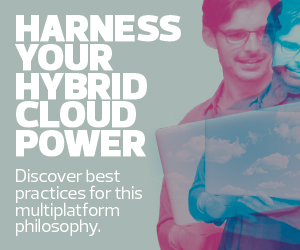Cybersecurity Training Is Job One in Hybrid Cloud
Hybrid cloud environments bring frequent security and regulatory compliance requirements; such environments can be disruptive or costly to implement and automate across disparate solutions.
ISACA’s State of Cybersecurity 2022 Report shares several sobering statistics for CISOs and cybersecurity teams as a whole: 1 in 5 survey respondents said it takes more than six months to find qualified cybersecurity candidates for open positions, and 62 percent report that their cybersecurity teams are understaffed.
What skills should leaders look for in candidates, or enhance within existing teams to keep current? Soft skills (54 percent), cloud computing knowledge (52 percent) and security controls experience (34 percent) are among the most important, according to the ISACA survey.
Training and upskilling those cybersecurity or SecOps workers not only improve a business’s security posture and outcomes but also aid in retention. Cybersecurity professionals leave their current positions in large part due to limited promotion and development opportunities (47 percent) and lack of management support (34 percent). Getting teams training opportunities and ensuring management provides time to complete that training or gain the sought-after skills is a win-win for all.
DIVE DEEPER: Discover the basic steps to optimize your organization’s hybrid cloud environment.
The Coding Languages Your Team Should Know In Hybrid Cloud
Modern infrastructure and the latest class of servers available today “can address modern needs: the ability to scale quickly, integrate with hybrid cloud and cloud-based resources, the ability to automate deployment of those machines, remotely manage them and really kind of deal with infrastructure as an elastic resource,” says Brent Ellis, a senior analyst leading Forrester’s technology resilience, backup, storage and mainframe modernization research.
“We’re no longer in this situation where you have a single IT administrator racking and stacking machines. You’re really buying infrastructure as a commodity and deploying it as a scaffolding for all the applications your business is building,” Ellis adds. “The typical IT administrator’s job has a lot more development than it did in the past. Those people actually have to learn how to code.”
Among the languages that are essential for hybrid cloud success are Terraform, which enables automation capabilities and scaling services to multiple cloud platforms; Kubernetes (K8s), which enables container management and orchestration; and CloudFormation (specifically for Amazon Web Services), which allows applications to be deployed regardless of physical location.
Click the banner to learn how your institution can benefit from a hybrid cloud environment.












